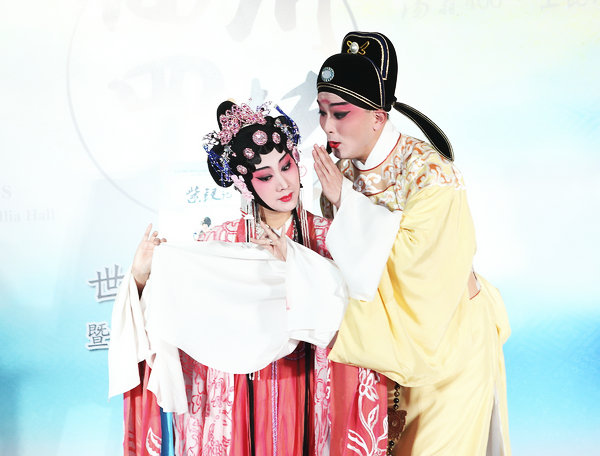
When Liang Guyin spent 18 months' salary on tuition, to learn an episode of the play Peony Pavilion, she could never have foreseen that half a century later, she would still be performing the play.
It was the summer of 1976, and Liang was a hardworking young actress with more than a decade of training in Kunqu Opera, an ancient local art form of southern China.
Decades earlier, the play Peony Pavilion had been banned, because the love story between a man and a female spirit was unacceptable in the political environment back then.
Peony Pavilion represented the ultimate climax of Kunqu Opera, and she was determined to learn all of it even though she might never have been able to present it on stage.
To attain her dream, she was then introduced to Yao Chuanxiang, a maestro of Kunqu Opera, and wanted to learn from him a particular episode of Peony Pavilion.
In order to convince the maestro, who was known for his reluctance to teach, as well as to prove her determination and sincerity, Liang offered Yao an envelope containing 1,000 yuan ($154), which amounted to her total salary of a year and a half at the time.
"I believed it was worthwhile," she says, adding that she didn't pay any fees for learning Kunqu in school.
It was only in 1993 that Liang would perform Peony Pavilion for the first time.
Three years later Yao died in Hangzhou, in East China's Zhejiang province.
Now, Liang, 74, will join her colleagues from the Shanghai Kunqu Opera Troupe to perform the play as part of an international tour of four classical plays known as Four Dreams in the Camellia Hall by Tang Xianzu (1550-1616), the celebrated playwright of the Ming Dynasty (1368-1644).
She will be the lead actress for Peony Pavilion, which is by far the most recognized play of the Four Dreams performance.
"I am grateful for the love and support of the audiences, which is so much more than I deserve," she says. "I might be in heaven when I actually reach the level they praised me for."
Starting on Sunday, the tour will cover 11 cities in China, as well as Prague and New York.
Gu Haohao, the director of the troupe, says: "We've signed up for 38 shows this year. This is the largest project of the Shanghai Kunqu Opera Troupe."
The project has brought together generations of Kunqu Opera artists-from Liang and fellow artists in their 70s to younger talent.
Artists such as Shen Yili and Li An, who will be performing The Purple Hairpin, another operatic piece, are in the "golden years" of their artistic careers, says Yue Meiti, an artist in her 70s.


















































